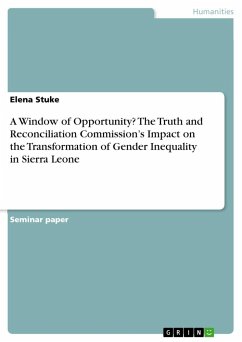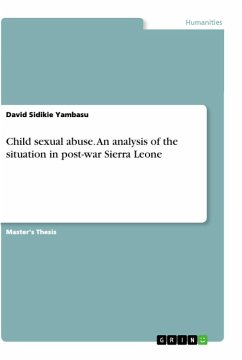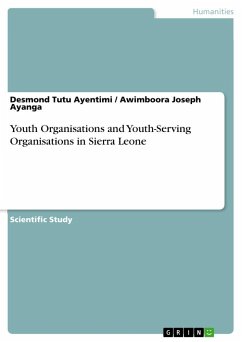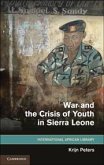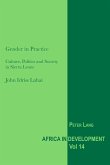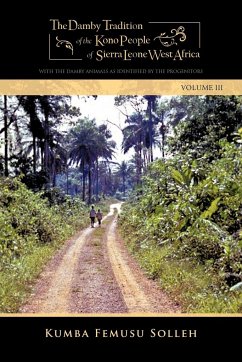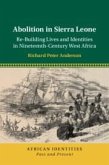Seminar paper from the year 2019 in the subject Sociology - Relationships and Family, grade: 1,7, University of Bayreuth, course: Social and Political Processes in Africa and Beyond: Post-conflict Societies in Africa, language: English, abstract: This term paper analysis the transitional justice mechanism of the Truth and Reconciliation Commission in Sierra Leone with regard to its impact on gender equality in the country. It analyzes the gender-transformative potential of the Commission, examines the measures taken by the government to implement the Commission's recommendations on gender equality and analyzes the changes that have been achieved with regard to gender equality in Sierra Leone.While the trials of the Sierra Leone Special Court have led to a number of groundbreaking legal developments that have significantly impacted international gender justice the Court is believed to not have offered much potential for the transformation of gender relations due to "the absence ofa reparations mandate and the limited opportunities for victims to participate in proceedings" (Williams and Opdam 2017, 1286). Therefore, this analysis focuses on the TRC. It will begin with a brief account of the situation of women in pre-conflict Sierra Leone as well as during the conflict to make the case for the need for a transformation of gender relations. This will be followed by an analysis of the gender-transformative potential of the TRC and a subsequent examination of the measures taken by the government to implement the TRC's recommendations on gender equality. Subsequently, the changes that have been achieved with regard to gender equality in Sierra Leone will be examined. Finally, the position of women in contemporary Sierra Leone will be outlined, followed by a brief presentation of missed opportunities in the promotion of gender equality.

